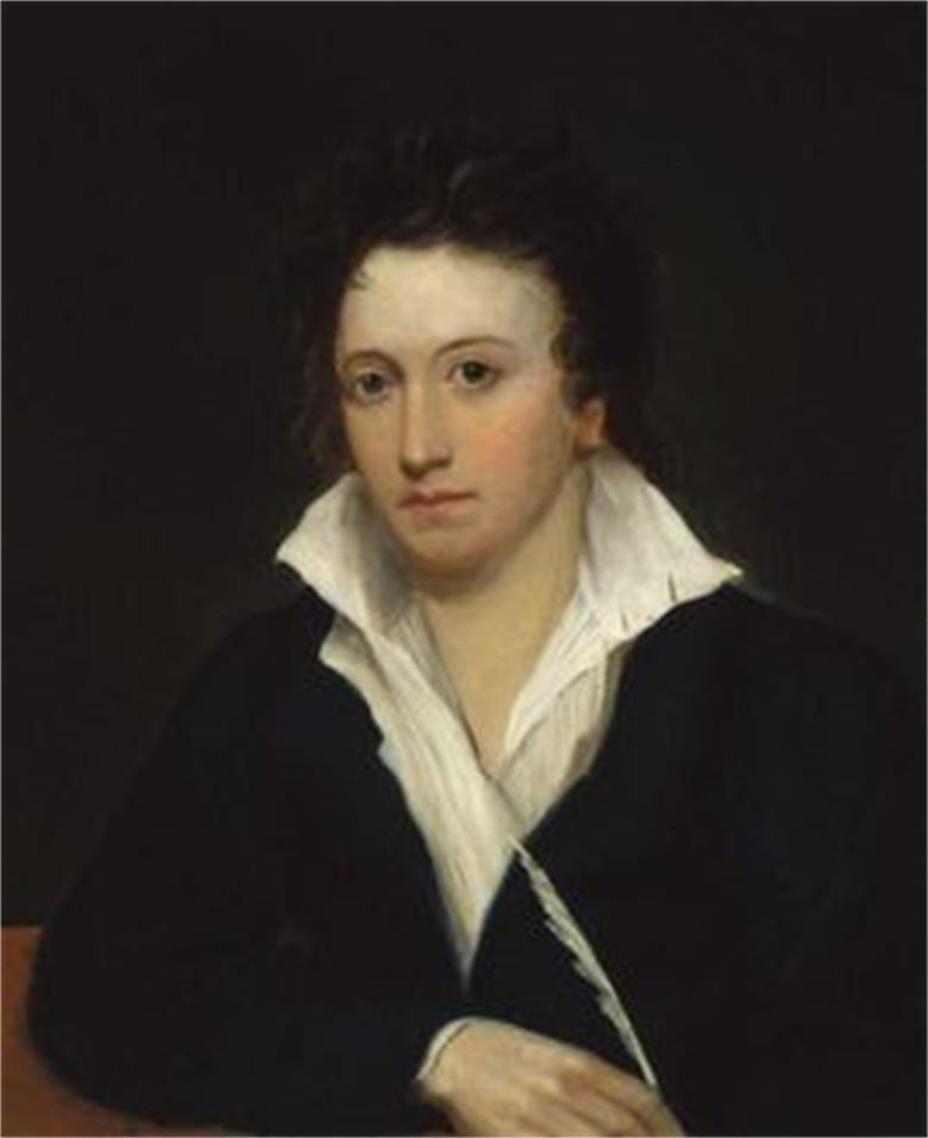基本介紹
- 作品名稱:阿波羅之歌
- 外文名稱:Hymn of Apollo
- 創作年代:1820年
- 文學體裁:詩歌
- 作者:波西·比希·雪萊
基本信息,英漢對照,查良錚教授譯本,
基本信息
Hymn of Apollo①
阿波羅之歌
作者:【英】波西·比希·雪萊-Percy ByssheShelley
英漢對照
上善若水·譯
(原詩韻式為ABAB CC,拙以AAAA BB韻相諧試譯,歡迎斧正)
(一)
The sleepless Hours who watch me as I lie,
守候我入睡的不眠夜晚,
Curtained with star-inwoven tapestries,
用星辰交織的繡緯作垂簾,
From the broad moonlight of the sky,
將天宇朗朗的月光遮掩,
Fanning the busy dreams from my dim eyes,--
從睡眼裡驅散紛繁的夢幻,—
Waken me when their Mother, the gray Dawn,
倘若母親—晨曦,將我喚醒,
Tells them that dreams and that the moon is gone.
向他們說夢,月兒已消隱。
守候我入睡的不眠夜晚,
Curtained with star-inwoven tapestries,
用星辰交織的繡緯作垂簾,
From the broad moonlight of the sky,
將天宇朗朗的月光遮掩,
Fanning the busy dreams from my dim eyes,--
從睡眼裡驅散紛繁的夢幻,—
Waken me when their Mother, the gray Dawn,
倘若母親—晨曦,將我喚醒,
Tells them that dreams and that the moon is gone.
向他們說夢,月兒已消隱。
(二)
Then I arise, and climbing Heaven's blue dome,
於是我起身,爬上蔚藍天庭,
I walk over the mountains and the waves,
我漫步在莽莽波濤和群峰,
Leaving my robe upon the ocean foam;
將我的睡袍丟在浪花滄瀛;
My footsteps pave the clouds with fire; the caves
我的足跡鋪滿烈火雲層;
Are filled with my bright presence, and the air
雲窟溢涌著我輝煌的存在,
Leaves the green Earth to my embraces bare.
綠地之微風撲我赤裸胸懷。
Then I arise, and climbing Heaven's blue dome,
於是我起身,爬上蔚藍天庭,
I walk over the mountains and the waves,
我漫步在莽莽波濤和群峰,
Leaving my robe upon the ocean foam;
將我的睡袍丟在浪花滄瀛;
My footsteps pave the clouds with fire; the caves
我的足跡鋪滿烈火雲層;
Are filled with my bright presence, and the air
雲窟溢涌著我輝煌的存在,
Leaves the green Earth to my embraces bare.
綠地之微風撲我赤裸胸懷。
(三)
The sunbeams are my shafts, with which I kill
陽光是我弓箭,射殺欺騙,
Deceit, that loves the night and fears the day;
騙術喜歡夜晚,而畏懼白天;
All men who do or even imagine ill
一切作惡或想作惡的人員—
Fly me, and from the glory of my ray
逃避我,我的榮光—我的射線—
Good minds and open actions take new might,
良知和坦蕩贏取新的力量,
Until diminished by the reign of Night.
直到夜色籠罩,遮住光芒。
The sunbeams are my shafts, with which I kill
陽光是我弓箭,射殺欺騙,
Deceit, that loves the night and fears the day;
騙術喜歡夜晚,而畏懼白天;
All men who do or even imagine ill
一切作惡或想作惡的人員—
Fly me, and from the glory of my ray
逃避我,我的榮光—我的射線—
Good minds and open actions take new might,
良知和坦蕩贏取新的力量,
Until diminished by the reign of Night.
直到夜色籠罩,遮住光芒。
(四)
I feed the clouds, the rainbows, and the flowers,
我以其飄渺的繽紛色彩,
With their ethereal colors; the Moon's globe,
賞賜給花朵、彩虹和雲海,
And the pure stars in their eternal bowers,
完 美的星球,閨閣永遠存在,
Are cinctured with my power as with a robe;
似法衣用我的權力做腰帶;
Whatever lamps on Earth or Heaven may shine,
天上人間,無論什麼光閃爍—
Are portions of one power, which is mine.
是天賦的一部分,屬於我。
I feed the clouds, the rainbows, and the flowers,
我以其飄渺的繽紛色彩,
With their ethereal colors; the Moon's globe,
賞賜給花朵、彩虹和雲海,
And the pure stars in their eternal bowers,
完 美的星球,閨閣永遠存在,
Are cinctured with my power as with a robe;
似法衣用我的權力做腰帶;
Whatever lamps on Earth or Heaven may shine,
天上人間,無論什麼光閃爍—
Are portions of one power, which is mine.
是天賦的一部分,屬於我。
(五)
I stand at noon upon the peak of Heaven;
中午,我站在天國的頂部;
Then with unwilling steps I wander down
於是以勉強的步履躑躅—
Into the clouds of the Atlantic even;
在大西洋黃昏的雲端漫步;
For grief that I depart they weep and frown:
離別的悲苦,他們傷心痛哭:
What look is more delightful than the smile
怎樣的表情比微笑更歡欣?
With which I soothe them from the western isle?
我從西方的小島撫慰他們?
I stand at noon upon the peak of Heaven;
中午,我站在天國的頂部;
Then with unwilling steps I wander down
於是以勉強的步履躑躅—
Into the clouds of the Atlantic even;
在大西洋黃昏的雲端漫步;
For grief that I depart they weep and frown:
離別的悲苦,他們傷心痛哭:
What look is more delightful than the smile
怎樣的表情比微笑更歡欣?
With which I soothe them from the western isle?
我從西方的小島撫慰他們?
(六)
I am the eye with which the Universe
我是宇宙萬象的眼睛—
Beholds itself, and knows itself divine;
目睹自身,明白自己的神聖;
All harmony of instrument or verse,
所有和諧的樂器或韻文,
All prophecy, all medicine, is mine,
一切藝術或造化的明燈,
All light of art or nature; - to my song
我的一切預言、所有良藥;
Victory and praise in its own right belong.
成功、讚美理當是我的歌謠。
譯註:阿波羅①希臘神話中的阿波羅是太陽神,主管白晝、預言、詩歌、藝術和醫藥。
(作於1820年)(written in 1820)
I am the eye with which the Universe
我是宇宙萬象的眼睛—
Beholds itself, and knows itself divine;
目睹自身,明白自己的神聖;
All harmony of instrument or verse,
所有和諧的樂器或韻文,
All prophecy, all medicine, is mine,
一切藝術或造化的明燈,
All light of art or nature; - to my song
我的一切預言、所有良藥;
Victory and praise in its own right belong.
成功、讚美理當是我的歌謠。
譯註:阿波羅①希臘神話中的阿波羅是太陽神,主管白晝、預言、詩歌、藝術和醫藥。
(作於1820年)(written in 1820)
查良錚教授譯本
一
不眠的時刻,當我在睡眠,
從我眼前【扇開了匆忙的夢】;
又讓鑲星星的帷幕作帳簾,
好使月光別【打擾】我的眼睛,—
當晨曦,【時刻的】母親,宣告夜夢
和月亮去了,【時刻就把我搖醒】。
不眠的時刻,當我在睡眠,
從我眼前【扇開了匆忙的夢】;
又讓鑲星星的帷幕作帳簾,
好使月光別【打擾】我的眼睛,—
當晨曦,【時刻的】母親,宣告夜夢
和月亮去了,【時刻就把我搖醒】。
二
於是我起來,登上碧藍的天穹,
沿著山巒和海波開始漫行,
我的衣袍就拋在海的泡沫上;
【我的步履給雲彩鋪上火】,【山洞】
充滿了我光輝的存在,【而霧氣
讓開路】,任我擁抱青綠的大地。
於是我起來,登上碧藍的天穹,
沿著山巒和海波開始漫行,
我的衣袍就拋在海的泡沫上;
【我的步履給雲彩鋪上火】,【山洞】
充滿了我光輝的存在,【而霧氣
讓開路】,任我擁抱青綠的大地。
三
光線是我的箭,我用它射殺
那喜愛黑夜、害怕白日的“欺騙”,
凡是作惡或蓄意為惡的人
都逃避我;【有了我輝煌的光線】
善意和正直的行為就【生氣勃勃】,
直到黑夜來統治,【又把它們】消弱。
光線是我的箭,我用它射殺
那喜愛黑夜、害怕白日的“欺騙”,
凡是作惡或蓄意為惡的人
都逃避我;【有了我輝煌的光線】
善意和正直的行為就【生氣勃勃】,
直到黑夜來統治,【又把它們】消弱。
四
我用大氣的彩色【餵養】花朵、
彩虹和雲霧;在那永恆的園亭,
月球和純潔的星星都裹以
我的【精氣】,仿佛是裹著衣裙;
天地間,無論什麼燈盞放明,
【那光亮歸於一】,必是我的一部分。
我用大氣的彩色【餵養】花朵、
彩虹和雲霧;在那永恆的園亭,
月球和純潔的星星都裹以
我的【精氣】,仿佛是裹著衣裙;
天地間,無論什麼燈盞放明,
【那光亮歸於一】,必是我的一部分。
五
每到正午,我站在天穹當中,
以後我就邁著不情願的步履
往下走進大西洋的【晚雲】中;
看我離開,雲彩會皺眉和哭泣:
我【要自】西方的海島給它安慰,
【那時呵,誰能比我笑得更嫵媚?】
每到正午,我站在天穹當中,
以後我就邁著不情願的步履
往下走進大西洋的【晚雲】中;
看我離開,雲彩會皺眉和哭泣:
我【要自】西方的海島給它安慰,
【那時呵,誰能比我笑得更嫵媚?】
六
我是宇宙的眼睛,【它憑著我】
看到它自己,認出自己的神聖;
一切樂器和詩歌所發的和諧,
一切預言,一切醫藥,一切光明
(無論自然或藝術的)都屬於我,
勝利和讚美,都該給予我的歌。
我是宇宙的眼睛,【它憑著我】
看到它自己,認出自己的神聖;
一切樂器和詩歌所發的和諧,
一切預言,一切醫藥,一切光明
(無論自然或藝術的)都屬於我,
勝利和讚美,都該給予我的歌。

